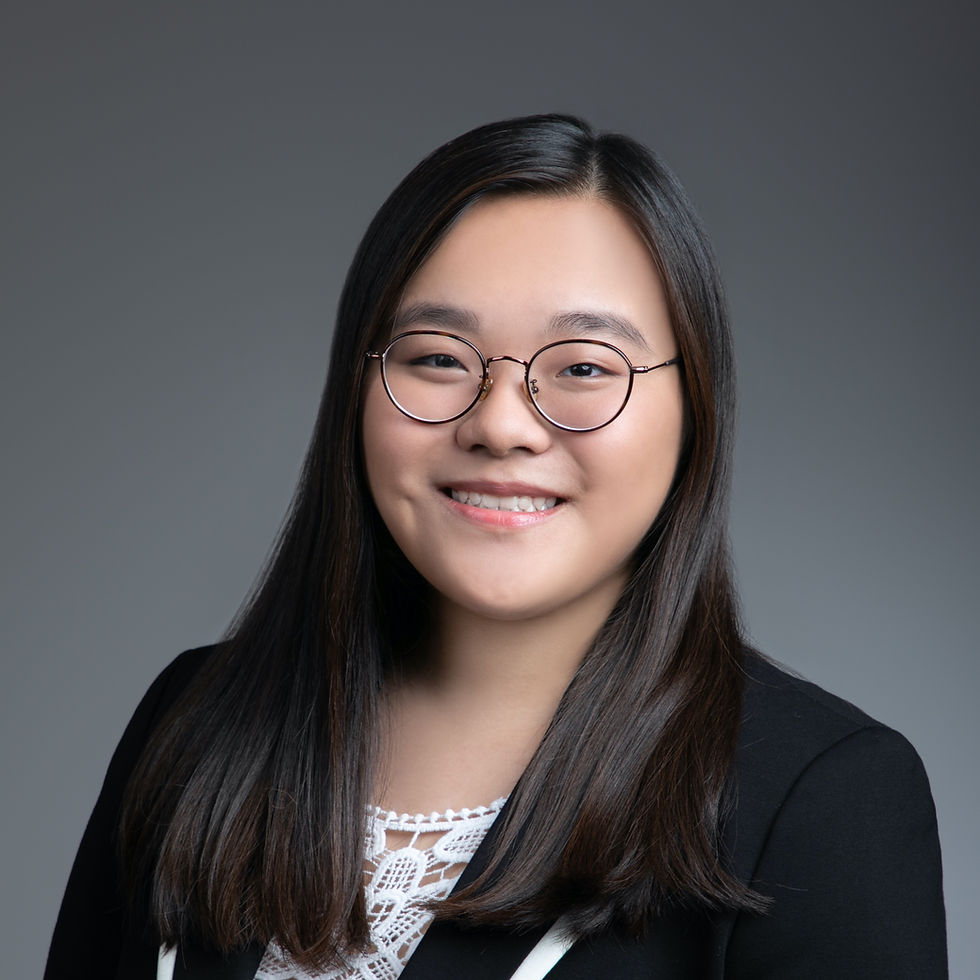DURHAM MATHS STUDENT: interview pt 1
- Joely To

- Dec 23, 2020
- 4 min read
I'm super excited to finish 2020 with this interview. Jennifer Leigh, a Mathematics student at Durham University, tells us her honest experiences of university so far and her thought process behind making decisions during sixth form. It's hard to narrow down to 3 or 4 A-Level subjects - and even harder to decide what to study at uni. But Jennifer shows us interests CAN change, and Maths can definitely be for you.

"As my subject interests developed and shifted, so did my degree plan: Engineering became Natural Sciences became Physics became Maths."
Why did you choose to study Maths and what was the decision-making process like during sixth form?
I never planned to study Maths at university. In fact, I initially chose to take Maths, Physics, Chemistry and Art at A Level. When school started encouraging us to think about potential
careers, I decided engineering would be the route for me, due to my combined love of art and science.
While I had always enjoyed Maths, I ruled it out as a potential degree choice pretty early on. There’s a certain stereotype of a mathematician, some sort of Sheldon Cooper-style Maths obsessive who spends their days cooped up alone in their room living and breathing Maths and, well, I wasn’t it. Sure, I was pretty studious, but I also loved school and every sociable aspect of it, chatting to teachers, other students, and I tried pretty much every non-mathematical extracurricular I could find, whether it was volunteering at an arts club or joining my school choir. So clearly Maths wasn’t for me...right?
"The decision that has probably affected my career most thus far was switching Art A Level for Further Maths."
After finishing my GCSE exams, my mum took me to the local university’s open day, just so I could get a feel for the different subjects I could study. I remember when I saw my mum again later that day, I told her confidently that engineering was not the right degree for me (I should mention I had always hated practicals at school, which probably had something to do with it). So, there I was at a University of Manchester open day, a Year 11 student who suddenly had no clue what she wanted to study, with engineering out of the window. I visited a couple other talks that day, but the one that sticks in my memory was the Maths talk; I would finish Year 11 still unsure what I wanted to study at university, but at least that talk shone me a light in the right direction.
The decision that has probably affected my career most thus far was switching Art A Level for Further Maths. Art, my favourite subject at GCSE, was and still is one of my passions, but Further Maths kept a door open which I wasn’t sure if I was ready to close yet. This was an unbelievably difficult decision for me which I would fear regretting for months into Year 12, however ultimately, I wouldn’t be where I am today if I hadn’t made that decision on GCSE results day. As my subject interests developed and shifted, so did my degree plan: Engineering became Natural Sciences became Physics became Maths.
Can you describe a typical day at Durham University?
"Since our days are so packed, often us Maths students congregate at lunchtime, which is a refreshing change from our other groups of friends"

At Durham University, I have roughly 20 contact hours a week, a mixture of tutorials and lectures. Usually I start at 9am, which means waking up an hour beforehand, getting ready, picking up something quick to eat and heading to the Science site, about a 15-minute walk away.
Lectures are intense, and often consist of hurriedly scribbling down notes to try and keep up with the lecturer as that constantly switch between whiteboards. With lectures frequently back to back, I usually take breaks from Maths during the day to focus on my non-academic commitments, whether it is an illustration for the student newspaper or working on the logistics behind a show I’m producing.
As a first-year student, I live and eat at my college, St Chad’s. Since our days are so packed, often us Maths students congregate at lunchtime, which is a refreshing change from our other groups of friends. Often, we take this opportunity to complain about a particularly difficult lecture or irritating questions on the homework!
I have weekly or fortnightly tutorials depending on the time of year and the module; Maths tutorials at Durham generally consist of small groups of 2-4 students (in a class of 12-15) working on problems on one of the multiple blackboards, while the tutor goes around helping us if we have any issues. I personally find tutorials a really valuable source of learning, as it allows us to consolidate what we’ve learnt in lectures with help from the tutor, without all the pressure of working in front of a full class!
At the end of the day, I am usually pretty tired, however more often than not I will have some sort of evening commitment, whether it is a college formal, rehearsals or having a nice evening with my friends. I always aim to finish my homework, which is set on Thursday or Friday, by the end of the weekend so I can enjoy myself during the week.
Term time at University is undoubtably pretty hectic, however I really love the learning environment as well as the social aspect of university.
This is the last article for 2020 - we'll be back with part 2 of this interview in the new year! This will feature Jennifer's top advice for you and resource recommendations, as well as her own mathematical interest areas.
In the meantime, stay safe and have a lovely Christmas!





Comments